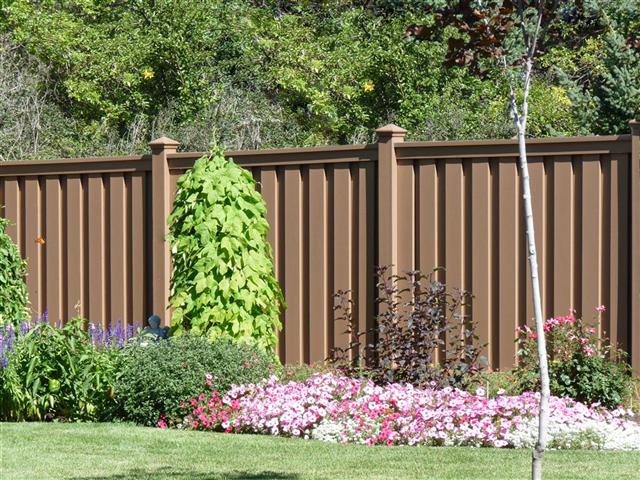All Categories
Featured

Choosing the appropriate fencing product is important for achieving the balance of resilience, visual appeals, and functionality that suits your residential property. Wood, plastic, and light weight aluminum are preferred choices, each with special attributes that satisfy details demands. Below's an in-depth look at the advantages and negative aspects of these 3 products.
Wood Fence. Pros:. Ageless Charm: Timber offers a natural, traditional appearance that matches numerous architectural designs. Adjustable: It can be repainted or tarnished in a variety of designs and colors. Inexpensive: Wood fences are often less costly upfront than vinyl or aluminum. Eco-Friendly: As a renewable source, timber is eco-friendly and lasting when sourced properly. Disadvantages:. Maintenance-Intensive: Requires regular discoloration, paint, or securing to secure against weather and pests. Much Shorter Life Expectancy: Depending on the kind of wood and climate, it generally lasts 10-15 years. Vulnerability to Damage: Prone to decomposing, warping, and termite damages without correct treatment. Timber is optimal for home owners that value looks and agree to invest effort and time in upkeep to extend its life.
Plastic Fence. Pros:. Long lasting: Resistant to bugs, rot, and weather, vinyl maintains its framework in harsh problems. Reduced Maintenance: Needs little maintenance beyond occasional cleaning. Lengthy Life expectancy: Vinyl can last 20-30 years without significant wear or damages. Flexible Styles: Offered in different colors, structures, and designs, including options that mimic timber. Disadvantages:. Costly Setup: Plastic fencings are extra expensive to install compared to wood. Weak in Cold Weather condition: Vinyl can crack in severe cool climates. Difficult to Fixing: If harmed, entire sections may need replacement, which can be testing to match. Plastic fence is a terrific option for those prioritizing longevity and marginal maintenance, even if it includes a higher in advance expense.

Light Weight Aluminum Fence. Pros:. Rust-Resistant: Aluminum does not rust, making it perfect for damp or humid locations. Lightweight but Solid: Offers stamina without being overly hefty, which streamlines installment. Low Upkeep: Requires little greater than cleansing and periodic repainting. Longevity: Light weight aluminum fences can last for years without substantial damage. Sophisticated Designs: Typically utilized for ornamental functions, aluminum includes refinement to any kind of property. Cons:. High Preliminary Price: Aluminum fences are among the much more expensive choices. Minimal Personal privacy: Frequently developed with open rooms, they do not obstruct views or sound. At risk to Damages: While durable, light weight aluminum can be dented or curved with hefty effect. Light weight aluminum is ideal fit for those who want a resilient, trendy fencing and do not need total privacy.
Making the Right Choice. Each material has its strengths and weak points:

Wood is ideal for typical visual appeals and eco-conscious customers that don't mind upkeep. Vinyl helps house owners seeking a weather-resistant, low-maintenance remedy. Aluminum is a durable, decorative choice for those that want sophistication and durability. Consider your top priorities-- whether it's cost, personal privacy, appearance, or upkeep-- and speak with a secure fencing professional to choose the material that finest fulfills your demands. A well-selected fencing will certainly enhance your building for many years ahead.
Latest Posts
Explore Leading Car Repair Solutions from Montclare Auto Repair – Quality Service Today
Published en
1 min read
Reasons Regular Vehicle Maintenance at Montclare Auto Repair Reduces Costs
Published en
1 min read
Unlock WyHy Federal Credit Union – Smart Money Management for Your Money Goals
Published en
1 min read
More
Latest Posts
Explore Leading Car Repair Solutions from Montclare Auto Repair – Quality Service Today
Published May 29, 25
1 min read
Reasons Regular Vehicle Maintenance at Montclare Auto Repair Reduces Costs
Published May 27, 25
1 min read
Unlock WyHy Federal Credit Union – Smart Money Management for Your Money Goals
Published May 25, 25
1 min read